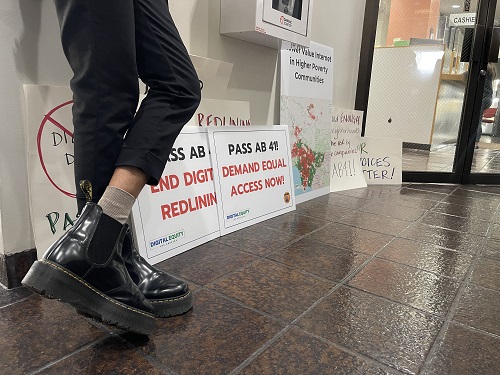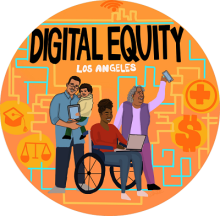Digital Equity LA Picket Urges CA State Senator to Pass AB 41
Chants for “affordable” and “quality Internet” rang through the corridors of Inglewood City Hall this morning.
The source of that sound came from members of the coalition known as Digital Equity LA who assembled to picket in front of State Sen. Steven Bradford’s Office, publicly calling for an “end to digital redlining” and for passage of Assembly Bill 41 (AB 41), also known as The Digital Equity in Video Franchising Act of 2023.
If passed as is, the proposed bill – which we wrote about previously here – would establish an equal access requirement, anti-discrimination provisions, and a process for the public and local governments to provide input on the franchise agreements governing how cable Internet service providers serve their communities.

Noting how nearly 98 percent of all broadband subscribers in the Golden State get Internet service through cable companies operating under DIVCA franchises, reforming the franchise law would help reform broadband access – which the coalition says is essential to address the digital divide across one of the largest metro areas in the nation.



